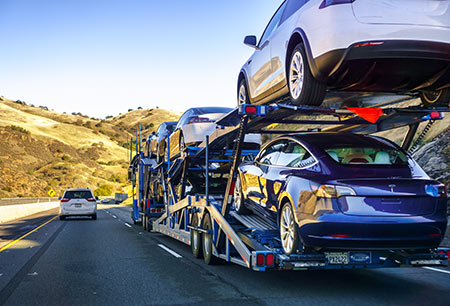When shipping a vehicle, there are several responsibilities that you need to be aware of to ensure a smooth move for your automobile. Although professional auto transport companies take care of most major things, you still need to do your part as the owner of the vehicle.

Here's all you need to know and do before shipping a vehicle.
1. Protect yourself from scams
As with any move, your first responsibility is towards yourself. Compare prices between a few car shipping companies and beware of lowball estimates - you usually get what you pay for.
All legitimate long-distance movers should have a USDOT (United States Department of Transportation) number and, if they have been active since 1995 or earlier, an MC (Motor Carrier) number. You can check the websites of the companies for all the relevant information that would protect you from getting scammed.
2. Ask the shipping company the right questions
In order to make sure that your vehicle is shipped without any risk of getting damaged during transit, you should ask each car shipping company (that you're considering using) the right questions to find out everything you need to know about the company and the process.
From pricing to insurance, you must gather all the important details about the shipper before making your final decision as to which company you're going to use. Since your automobile's insurance company may not be able to cover shipping across the country, you may need to purchase extra insurance for transporting your vehicle. Ask your shipping company about insurance; they may be able to send you to the right place - and they might even offer it themselves.
For more details, you can read our guide " top 10 questions to ask an auto transport company "
3. Notify the DMV
It is your responsibility to notify the Department of Motor Vehicles (DMV) that you are moving to another state. This must be done within 10 days of the move itself and cannot be accomplished through e-mail - this process may involve paper mail, calling via telephone, or an actual visit to the DMV. Be sure that both your license and registration are updated with your new address.
4. Notify your insurance company
If you are moving across the country, you need to communicate with your auto insurance company about all the details that you need to change in the policy.
Read more: Auto Transport Insurance: All You Need to Know
5. Inspect your vehicle thoroughly
Thoroughly inspect your vehicle before your move. Take note of any scratches, dents, or cracks in the headlights, etc. This can be performed by a hired professional if you prefer, but it should always be done with the moving company present. Have them sign off on a report of the condition of your automobile before the move, and make sure a copy of the report goes into the bill of lading. Consider the following:
- Is the tailpipe intact?
- What condition are your mirrors and windows in?
- How do your tires look?
- What condition is the interior in?
TIP: Treat your vehicle as though you were taking it in for a state inspection.
Read the bill of lading very carefully before signing it and make sure it includes the proper information concerning your vehicle, its destination, and insurance.
6. Prepare your vehicle for shipping
When shipping a vehicle, it's important to prepare it the right way. Read the following preparation steps for car shipping:
- Keep the gas tank at a quarter of the way filled; most companies will charge by the weight of your vehicle, so having it too full will cost you extra. Make sure your battery isn't leaking and that you have enough coolant in the radiator.
- Keep in mind that you will be charged if your vehicle is inoperable, so it might be worth having a mechanic give it a once-over.
- Deactivate any alarm system on the vehicle.
- Anything detachable on the outside of the vehicle, such as an antenna or spoiler, should be removed.
- If there are any modifications to the vehicle, they need to be mentioned to the movers. This will allow them to give you a more accurate quote. If they find out afterward, you will be charged anyway, all the while making their job a little more difficult.
- Remove any personal items from the inside of the vehicle. The movers will not be liable if any item is lost, stolen, or damaged. On top of that, these items can add weight to your automobile, which will raise the price of shipping. For more details, you can read our guide on shipping your car with personal items.